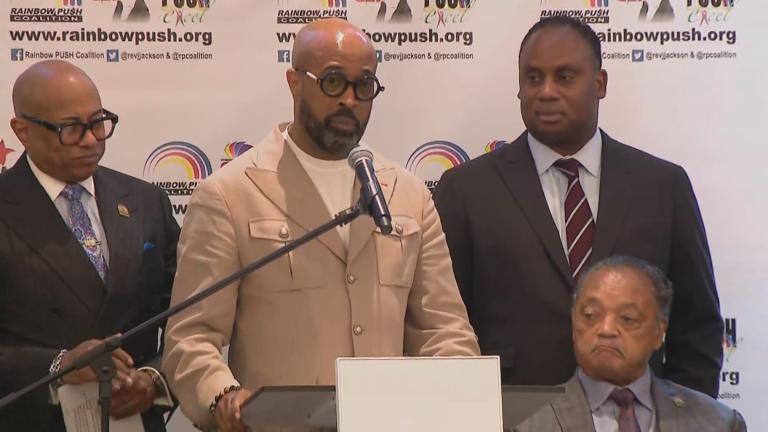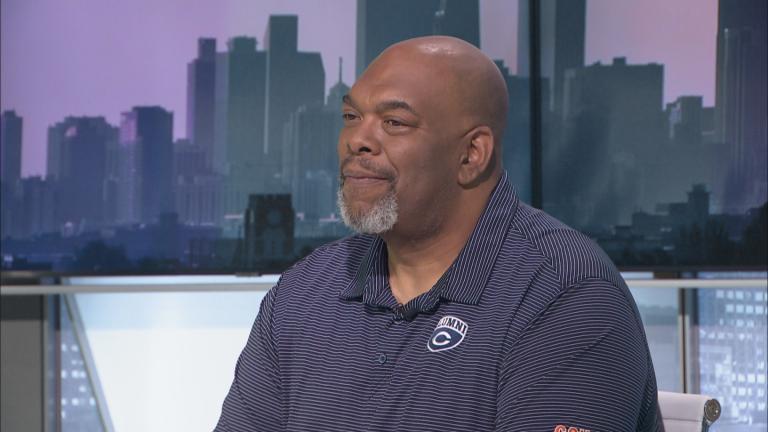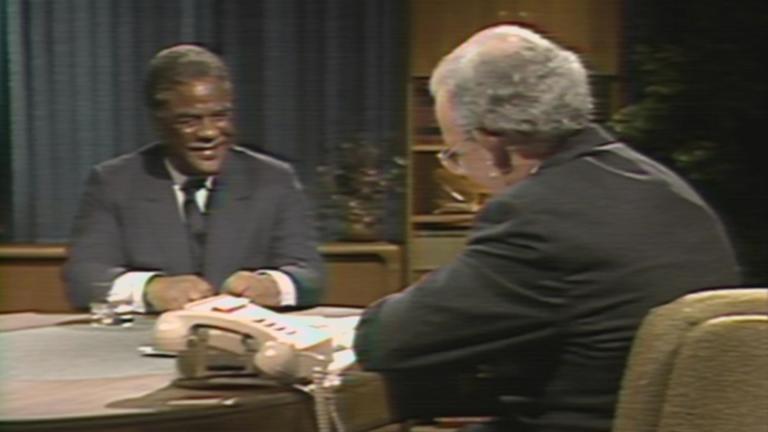This story was produced in partnership with students at the Medill School of Journalism at Northwestern University and WTTW News.
By Simone Garber and Cole Reynolds
For Chicago residents with disabilities, getting around the city can be more of a burden than a simple task.
The messages in spoken word artist Cherlnell Lane’s poetry are often positive. But commuting to open mics and hospital visits has been anything but positive.
On one trip to the emergency room, Lane said she sat waiting for a cab home and the car never came.
“There are rats literally running past me,” Lane recalled. “Huge rats. … I was just waiting and waiting and waiting. And I am terrified.”
Lane, like thousands of other Chicagoans, relies on the Taxi Access Program, known as TAP, to get around. The Chicago-subsidized taxi program, administered by Pace, serves those with disabilities who can’t use other forms of public transit.
The program has seen an exponential increase in popularity over the last few years, especially after Pace temporarily waived fares during the height of the COVID-19 pandemic.
“TAP can pick you up, and it can pick you up where you don’t have to plan a day in advance,” said Laura Saltzman, a senior policy analyst with Access Living. “… It allows for the independence that I think a lot of people who don’t have disabilities or don’t have mobility disabilities take for granted.”
But as the ridership boom continues, users and advocates said TAP is plagued by long wait times, verbally abusive drivers and unreliable rides.
“There have been times when I would get a driver, and it was all good,” said Jose Martinez, a Gage Park resident who is blind. “Other times when I did not get a driver. … This is my lifeline.”
TAP riders pay a one-way flat fee of $2 per ride, and Pace pays the difference up to $30.
Advocates blame the flaws in TAP on an auditing process that allows Pace to take 45 days to pay drivers. Pace officials said this process helps identify any “discrepancies that need to be resolved.”
However, TAP drivers said payments can take much longer than 45 days.
Driver Sulaimon Quadri said he submitted receipts in August 2023, and as of late November, still had not been paid.
“I mean nobody likes it,” Quadri said. “Everybody wants to work for pay. … For every businessman, you want to work and get paid.”
“We have brought the payment issue to Pace a couple of times,” Saltzman said. “They have said that they need to do auditing, and that this is just how it has to be and they’ve gotten it down to 45 days and that’s the best they can do.”
Advocates said payment delays encourage drivers to ignore riders with disabilities. And Lane said some drivers have even taken out their frustration on her.
“He was just, I mean, fussing and cussing. … I’m like, ‘Sir, I’m not the one who created the system,’” Lane said. “So you just have to take the abuse if you want to get to where you’re going.”
Drivers, facing delayed payments, often chase more consistent business, such as that found at O’Hare International Airport, creating a cluster of taxis around the airport and downtown.
Riders in other parts of Chicago, like Lane, who lives on the South Side, are often unable to even catch a ride.
“They don’t want to stop airport runs where they’re getting all this money to come pick me up on the South Side of Chicago,” Lane said. “They’re not trying to do that. So … you don’t get picked up.”
As Pace works to expand TAP, advocates and riders said paying drivers faster is a way to supercharge both service and the impact of the program.
“It really is a good thing, and that’s why we want to improve it because it’s usable,” Saltzman said. “It wouldn’t be so frustrating that there were these problems if it was not usable, … if it wasn’t really helpful.”
“I feel like we aren’t seen as a whole person,” Lane said, “… and it’s evident, like, in the way we’re treated through all of these transportation systems, … which is just heartbreaking.”
Pace officials said they plan to expand TAP with the implementation of a Rideshare Access Program, or RAP, which allows customers the option to use rideshare services like Lyft and Uber for only $2.








